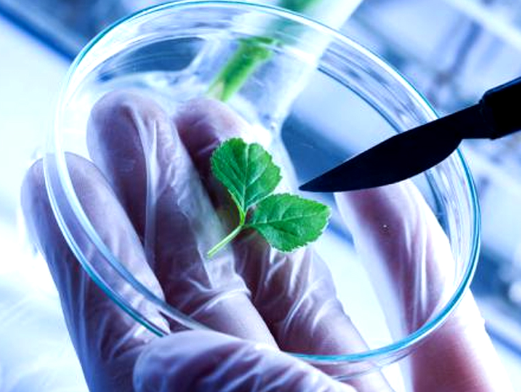Welcome to INES-Ruhengeri
Undergraduate
Biotechnologies

Program's Overview
Program Overview
The Biotechnologies Department is part of the Faculty of Engineering and Technology at INES-Ruhengeri, with approximately 550 students. It offers two options: Food Biotechnology and Plant Biotechnology.
The Biotechnologies Department is part of the Faculty of Engineering and Technology at INES-Ruhengeri, with approximately 550 students. It offers two options: Food Biotechnology and Plant Biotechnology.
Entry Requirements
-
Combinations
-
A prospective student to enroll in the first year in Bachelors of Science with Honours in Biotechnology must have successfully completed secondary school level at least 2 principal passes in related field and having majored in the following cluster combinations:
PCB: Physics - Chemistry - Biology;
BCG: Biology - Chemistry - Geography;
MCB: Mathematics - Chemistry - Biology,
MPB: Mathematics-Physics-Biology,
Food Processing, Crop Production, Veterinary, Forest, Agriculture, TVET Diploma in relevant related discipline can apply for this option.
-
Required documents
-
Identification Card (ID card)
Secondary school Diploma
Passport photo
Transcripts
Exit and Career Profile
Contacts of the Head of Department
Names: Dr. NIYITANGA Sylvain
E-mail: nsylvain@ines.ac.rw
Tel: +250784125576
Offered Modules
Year 1
| No | Module Title | No of credits | Semester |
|---|---|---|---|
| 1 | Languages I | 15 | 1 |
| 2 | Research Skills | 15 | |
| 3 | Philosophical Studies | 10 | |
| 4 | Mathematics | 20 | |
| 1 | Fundamental Physics | 20 | 2 |
| 2 | General Chemistry - Inorganic and Analytic Chemistry - Physical Chemistry - Organic Chemistry | 20 | |
| 3 | General Biology | 20 |
Year 2
| No | Module Title | No of credits | Semester |
|---|---|---|---|
| 1 | Languages II | 10 | 1 |
| 2 | Production Techniques | 15 | |
| 3 | Food Technology | 20 | |
| 4 | Food Engineering | 20 | |
| 1 | Advanced Chemistry | 20 | 2 |
| 2 | Microbiology | 20 | |
| 3 | Genetic & Evolution | 20 |
Year 3
| No | Module Title | No of credits | Semester |
|---|---|---|---|
| 1 | Molecular Biology | 20 | 1 |
| 2 | Plant Products Processing | 20 | |
| 3 | Animal Products Processing | 20 | |
| 1 | Food Biotechnology | 15 | 2 |
| 2 | Postharvest Technology | 10 | |
| 3 | Research Methods | 20 |
Year 4
| No | Module Title | No of credits | Semester |
|---|---|---|---|
| 1 | Biochemical Engineering | 15 | 1 |
| 2 | Beverages Science and Technology | 15 | |
| 3 | Food Products Analysis | 20 | |
| 1 | Food quality and Waste Management | 20 | 2 |
| 2 | Economics and Social Sciences | 10 | |
| 3 | Human Nutrition and Dietetics | 20 | |
| 4 | Professional Experience | 20 |
| Photo | Names | Qualification | Rank | Area of specialization | Bio |
|---|---|---|---|---|---|

|
Dr. NIYITANGA Sylvain | PhD | Lecturer and HOD | Plant Genetics and Breeding in Crop Science | View Profile |
| Dr. HARIMANA Yves | PhD | Teaching Staff | Biotechnologies | ||

|
Ms. DUSABE Angelique | Msc | Assistant Lecturer | Food Science and Biotechnology | View Profile |

|
Ms. Irakoze Marie Lys | Msc | Assistant Lecturer | Food Science and Technology | View Profile |
Contacts of the Head of Department
Names: Dr. NIYITANGA Sylvain
E-mail: nsylvain@ines.ac.rw
Tel: +250784125576

Subscribe
Enter your email address to subscribe to our newsletter and receive notifications of new posts by email.




